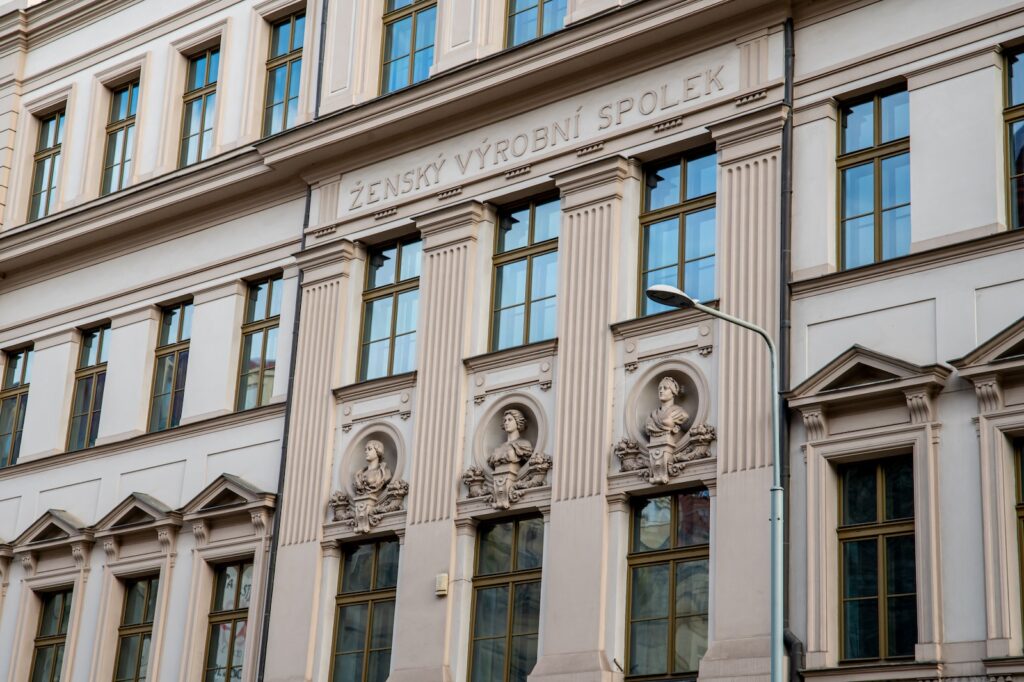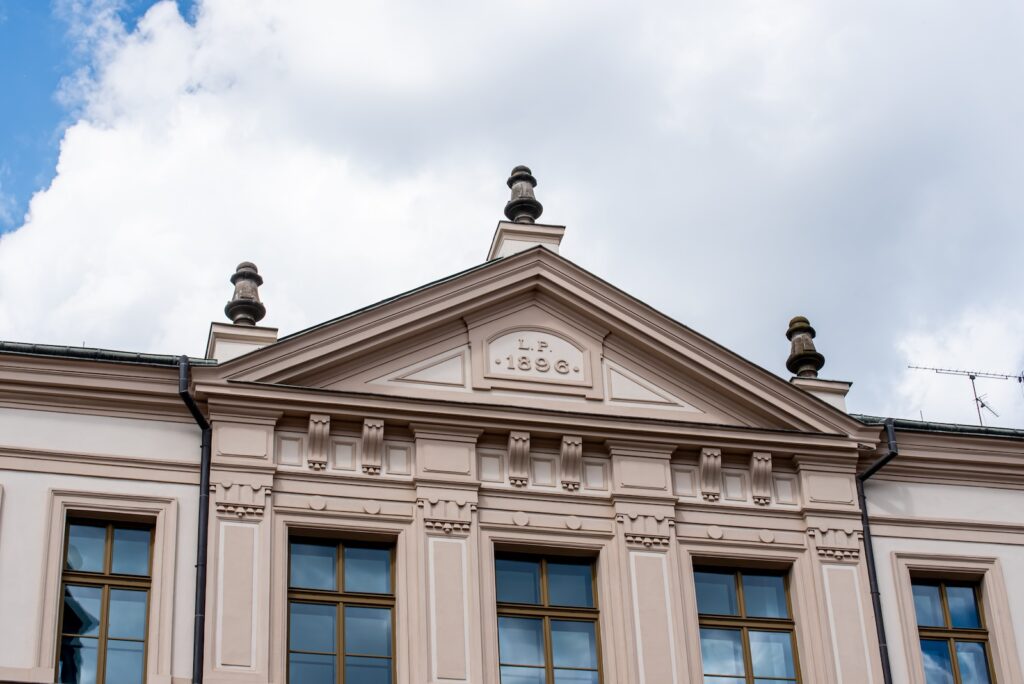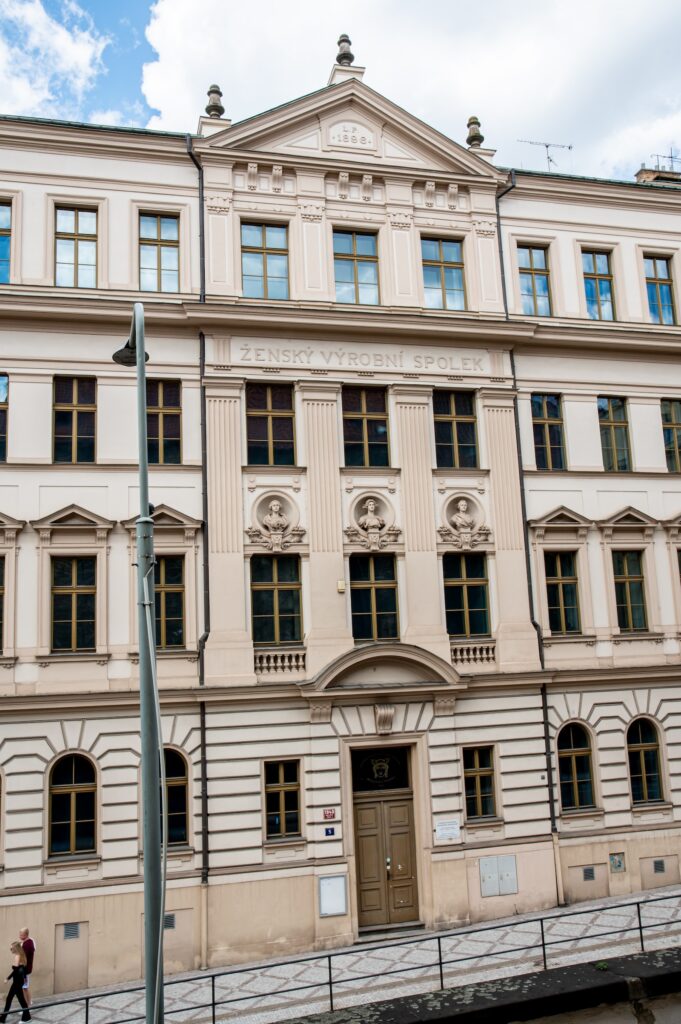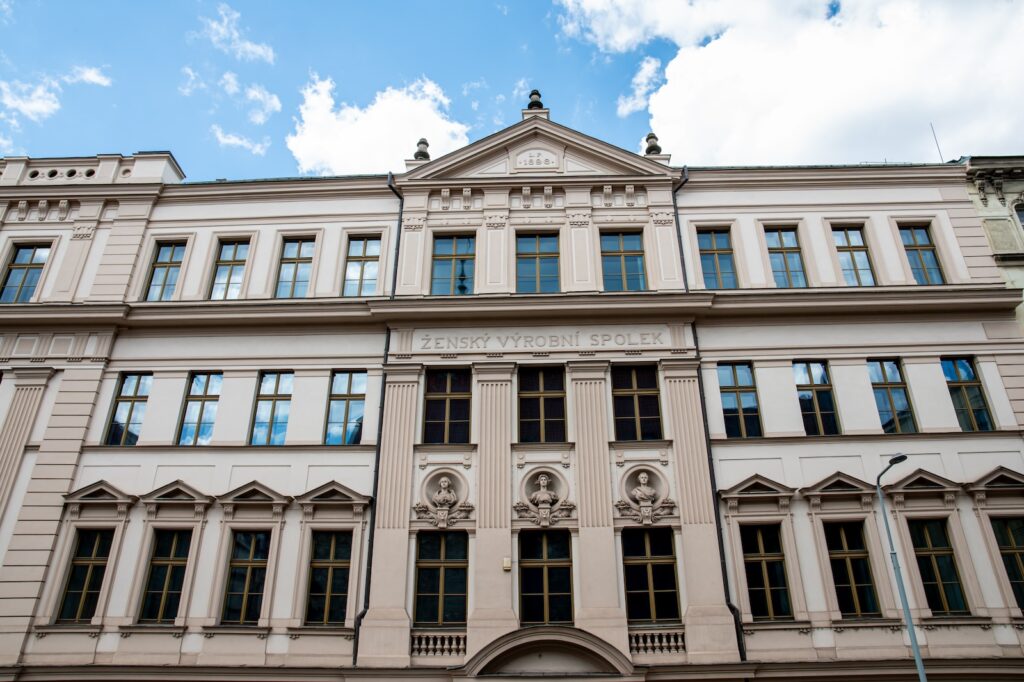Women’s Czech Production Society
Ženský výrobní spolek český (Women’s Czech Production Society) was an educational and charitable association active in the years 1871–1972. Established by Karolina Světlá and Eliška Krásnohorská, it was one of the first women’s associations in Bohemia during the Austro-Hungarian era. Here, girls attended lectures in business, industry, and craft disciplines. They also obtained practical contacts for housing through a local advertising platform and were taught financial literacy with the help of savings banks. They also studied the arts of drawing and wood engraving. Places like the Women’s Production Society helped women obtain the necessary knowledge and skills for independent adult life. The Society published Ženské listy (Women’s Letters), which soon became the central periodical of the women’s emancipation movement.
The building’s front features three busts (left to right): Emílie Bártová, Karolina Světlá, and Eliška Krásnohorská.
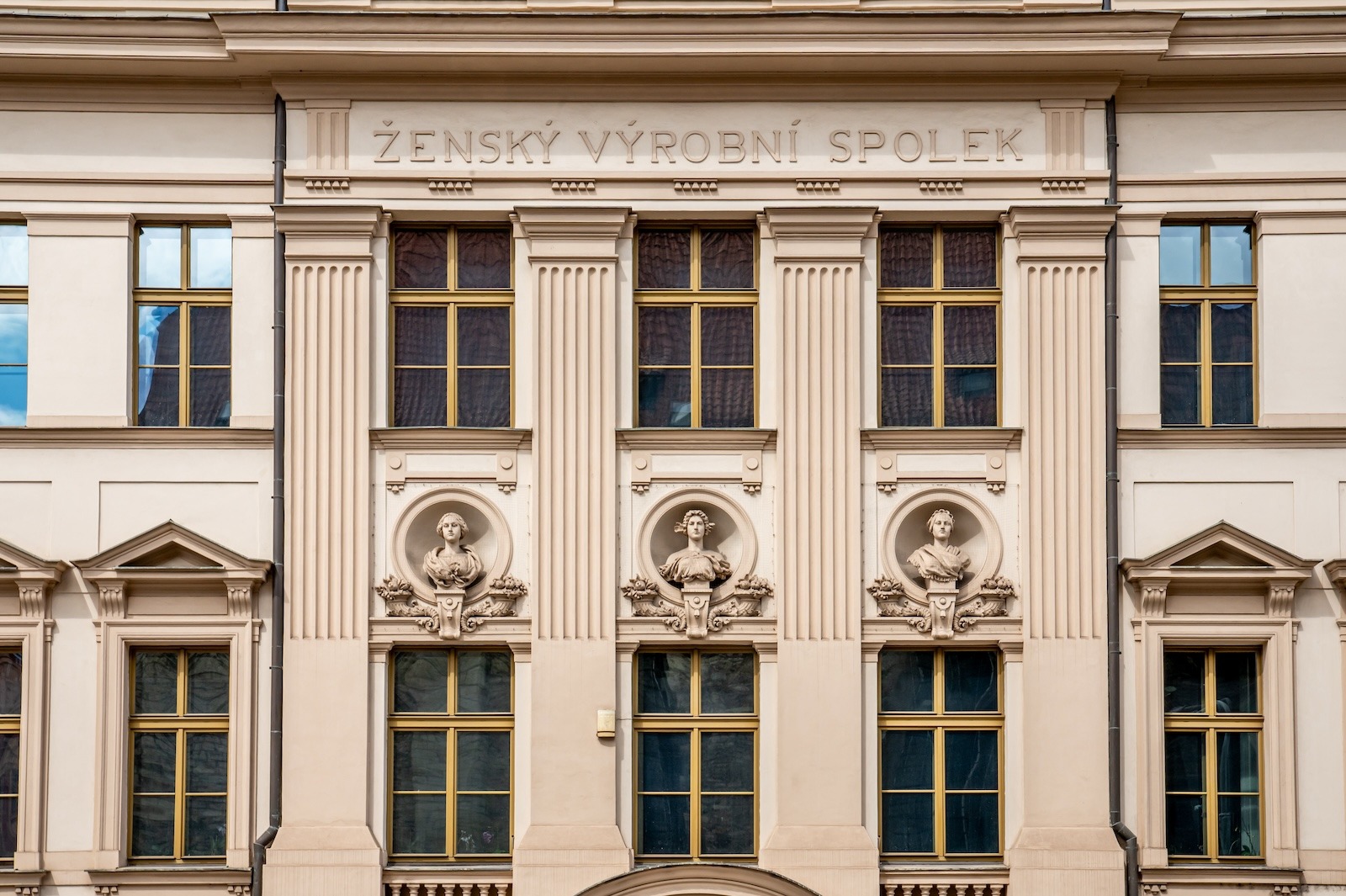
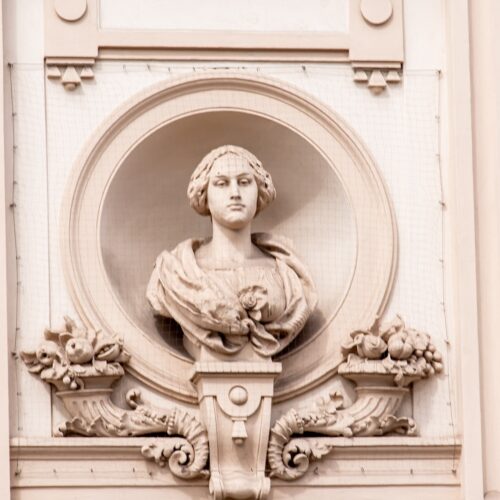
Emílie Bártová (née Kalivodová, 1837–1890) was a Czech feminist and suffragette, member of the American Ladies’ Club, and co-founder of the women’s associations Minerva and Women’s Czech Production Society (later its president). She collaborated with Karolina Světlá, Věnceslava Lužická, and Sofie Podlipská.
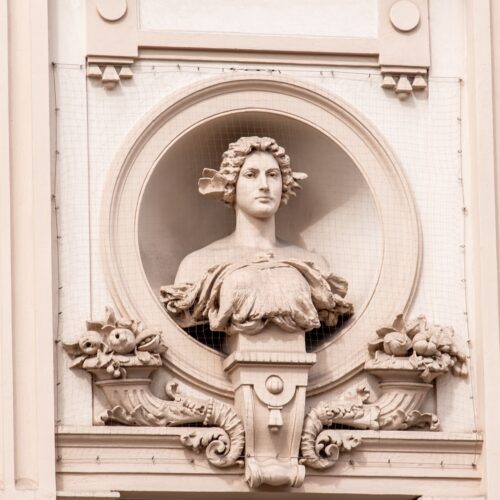
Karolina Světlá (real name Johana Nepomucena Mužáková, née Rottová) lived in the years 1830–1899 and became one of the most significant Czech female writers and feminists. She and Vojtěch Náprstek co-founded the American Ladies’ Club in 1865. She authored numerous works of literature, including novels on rural life, short stories, and the story behind Bedřich Smetana’s opera, The Kiss (with the libretto written by her friend, Eliška Krásnohorská). She and Krásnohorská co-founded the Women’s Czech Production Society in 1871 and served as long-term managing executives of the Women’s Letters.
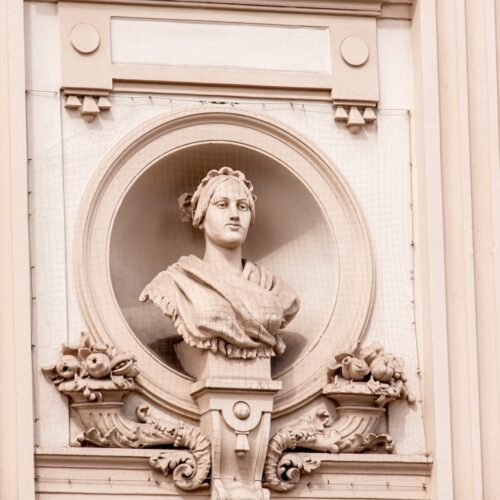
Eliška Krásnohorská (real name Alžběta Pechová, registered as Elisabeth Dorothea) lived in 1847–1926 and represents one of the key leaders of the Czech women’s movement and initiator of women’s education efforts. She lobbied for the right of women to study at secondary schools and later also colleges. She co-founded the Women’s Czech Production Society (with Karolina Světlá) and initiated and helped establish Central Europe’s first girls’ gymnasium, Minerva. She was also an important Czech writer, poet, librettist, and translator from several languages. At the occasion of her 75th birthday in 1922, she became the first woman in the history of Charles University to obtain an honorary doctorate in philosophy.

